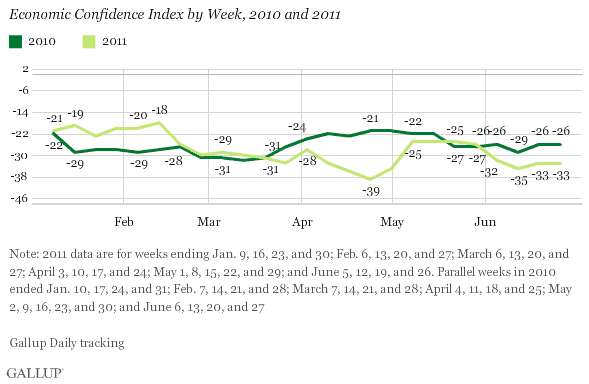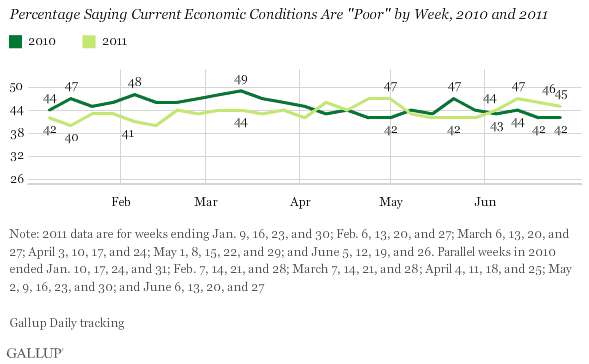-
Flap’s California Morning Collection: June 28, 2011
 A morning collection of links and comments about my home, California.
A morning collection of links and comments about my home, California.Yesterday afternoon Democratic Governor Jerry Brown and Democratic Legislative leaders announced a new agreement on a majority-vote California state budget. Here are the details:
It maintains parts of the package Brown vetoed nearly two weeks ago:
— $150 million cut each to University of California, California State University
— $150 million cut to state courts
— $200 million in Amazon online tax enforcement
— $2.8 billion in deferrals to K-12 schools and community colleges
— $300 million from $12 per vehicle increase in DMV registration fee
— $50 million from fire fee for rural homeowners
— $1.7 billion from redevelopment agencies
— Higher tax receipts (now worth $1.2 billion from May and June)The new budget rejects some parts of that package:
— $1.2 billion from selling state buildings
— $900 million from raising a quarter-cent local sales tax
— $1 billion from First 5 commissions
— $500 million cut in local law enforcement grants
— $540 million deferral to University of California
— $700 million in federal funds for Medi-Cal errorsAnd it adds the following:
— $4 billion in higher projected revenues in 2011-12, with triggered cuts
— 1.06 percentage point sales tax swap that redirects money to local governments for Brown’s “realignment” plan rather than to the state. Sales tax rate will still fall 1 percent on July 1.The $4 billion “trigger” plan bears some explaining.
First, the plan requires Brown’s Department of Finance director, Ana Matosantos, to certify in January whether the $4 billion projection is accurate. She will use revenue totals for July to December and economic indicators to project the remainder of the fiscal year.
The “trigger” cuts are essentially in three tiers, based on how much of the extra $4 billion comes in.
Tier 0: If the state gets $3 billion to $4 billion of the money, the state will not impose additional cuts and roll over any balance of problem into the 2012-13 budget.
Tier 1: If the state gets $2 billion to $3 billion of the money, the state will impose about $600 million of cuts and roll over the remainder into the 2012-13 budget. The $600 million in cuts include a $100 million cut to UC, a $100 million cut to CSU, a $100 million cut to corrections and a $200 million cut to Health and Human Services.
Tier 2: If the state gets $0 to $2 billion of the money, the state will also impose up to $1.9 billion in cuts, including a $1.5 billion reduction to schools that assumes seven fewer classroom days. It also includes a $250 million elimination of school bus transportation (except for that which is federally mandated). Cuts will be proportionate to how much of the first $2 billion in revenues the state gets. State will also impose the Tier 1 cuts.
Talk about gimmicks. This budget is all smoke and mirrors with assumptions that are not within the realm of possibility.
Look at the Amazon Tax for example. Is there anyone who believes the state will capture $200 million in additional revenue when Amazon et. al. say they will cease their associate businesses in California if the law is signed. Plus, they plan to challenge the legislation in state and federal courts and what will that cost the State of California.
So, the Democrats have made a deal that will hopefully get past the Democratic Controller John Chiang in order to restore the Legislators pay. But, in all reality, this budget deal is a sham based on wildly exaggerated revenue assumptions – a rosy scenario at the extreme.
On to today’s links……
Dan Walters: Will Democrats’ rosy-scenario budget work?
When governors and legislators face seemingly big budget deficits, they often turn to gimmicks to balance income and outgo on paper.
The most creative have been what Capitol cynics call “rosy scenarios.”
The politicians conjure up some new source of revenue, swear it is legitimate and then use the projected windfall to close their gap.
Former Gov. Arnold Schwarzenegger was an early advocate of rosy scenarios, such as assuming that the state could get as much as $1 billion from new gambling compacts with Indian tribes, or it could seize a half-billion dollars from punitive judgments in lawsuits.
Later, he counted revenues from peddling the state’s workers’ compensation insurance business and state buildings. His rosiest scenario occurred last year, when his initial budget assumed that the federal government would give the state as much as $7 billion in extra cash.
None of those funds materialized, but that doesn’t prevent Capitol politicians from dusting off another rosy scenario.
Gov. Jerry Brown and Democratic legislators, whose hopes of winning Republican support for tax extensions vanished, ginned up a new budget Monday, just days before the 2011-12 fiscal year is to begin.
Brown vetoed one Democratic budget, saying it was so gimmicky that Wall Street bankers would not give the state billions of dollars in short-term operating loans. And Controller John Chiang followed that by decreeing that since a balanced budget wasn’t enacted by the constitutional deadline of June 15, he’d cut off legislators’ salaries and expense payments as a new state law requires.
Brown and Democrats went back to the budgetary drawing board, and a new rosy scenario emerged – that above-expectation tax revenue this year means the state will collect an extra $4 billion during the fiscal year.
Brown ditches special election, plans more cuts
Gov. Jerry Brown on Monday abandoned his plan to hold a special election this year on whether to renew expiring tax hikes and instead said he will balance California’s budget with a combination of spending cuts and a projected increase in normal tax revenue.
Brown announced the latest approach at a news conference during which he was accompanied by the leaders of the state Assembly and Senate, both fellow Democrats. They agreed to pursue a budget for the coming fiscal year without support from Republicans, who had refused to accept an extension of expiring temporary tax increases, which had been the centerpiece of the Democratic approach.
Brown had hoped to extend a series of tax increases that are expiring this week, but he needed two Republican votes in each house to bring the proposal before voters.
After six months of talks with a handful of GOP lawmakers, Brown said he finally gave up on the idea Sunday night after receiving a text message from one of the lawmakers.
“We had some very serious discussions. I thought we were getting close, but as I look back on it, there is an almost religious reluctance (among Republican lawmakers) to ever deal with the state budget in a way that requires new revenues,” Brown told reporters during a brief news conference.
Instead, the Democratic leaders said they would pursue a ballot initiative to bring tax increases before voters in November 2012.
In some early fallout from the political upheaval expected under proposed new districts for California lawmakers, the campaign arm for House Republicans said it would begin airing a TV ad slamming Rep. Lois Capps (D-Santa Barbara) over her position on Medicare.
“Congress is debating big changes for Medicare, and Congresswoman Lois Capps voted for the most extreme plan. Capps voted for the plan the media says would ‘decimate Medicare,'” the narrator says in the spot that the National Republican Congressional Committee said would begin airing Tuesday.
Republicans see Capps as among the most vulnerable of the Democrats under the redistricting. Her district, derided as the “ribbon of shame” for its blatant gerrymandering, forms a narrow, 200-mile coastline band that runs from Oxnard to the Monterey County line. Under the first round of proposed new maps, her district would shift considerably and become less Democratic than currently.
Enjoy your morning!
-
Poll Watch: United States Economic Confidence Remains Low
 According to the latest Gallup Poll.
According to the latest Gallup Poll.After surging in May, Americans’ economic confidence receded in early June and remains near its 2011 low, averaging -33 in the week ending June 26. This is down seven percentage points from the week ending May 29 and down a similar amount compared with the same week a year ago.
U.S. economic confidence peaked this year at -18 in February and then generally declined, reaching -39 during week ending April 24, as gas prices surged and economic activity slowed. Confidence increased in May, averaging -26, likely in response to the news of Osama bin Laden’s death in a U.S. military raid.
Gallup’s Economic Confidence Index combines two measures: one assessing Americans’ views about whether the U.S. economy is “getting better” or “getting worse,” and the second involving Americans’ ratings of current economic conditions as “excellent,” “good,” “only fair,” or “poor.” Both ratings have deteriorated thus far in June.
Only 31% say that the U.S. economy is getting better.
The graph:
 45 % of Americans rate the American economy is poor:
45 % of Americans rate the American economy is poor: So, what does this all mean?
So, what does this all mean?Perception of the economy is important to voters. If President Obama and his cronies in the Congress wish to be re-elected they will have to make the case that their stewardship of the economy has been successful. Poll numbers are not demonstrating this perception.
The worsening of Gallup’s economic confidence measure during June may be due in part to the dissipation of the “halo effect” surrounding the death of bin Laden. Confidence has now moved back near the April 2011 low. This suggests that the consumer benefits associated with steadily declining gas prices at the pump — down 14 cents per gallon in the past two weeks — are being offset by other factors. One such factor might just be that gas prices remain 82 cents per gallon higher than they were a year ago. Another could be the continuing dismal jobs situation.
Federal Reserve Board Chairman Ben Bernanke last week seemed to add to the growing economic pessimism, noting that the Fed has reduced its 2011 growth forecast for the U.S. economy. Wall Street continues to suffer as a result of the Fed’s apparent confirmation of the economic “soft patch” and the financial problems in Europe. The battle over raising the debt ceiling has not disrupted the money markets to this point, but certainly represents another negative for overall economic confidence.
It may be that declining gas prices will eventually lead to improved consumer confidence and increased consumer spending, which could make the current economic soft patch modest and transitory. At this point, however, Gallup’s monitoring of economic confidence does not support that idea.
-
Day By Day June 27, 2011 – Order Up
 The MSM is blind to what Attorney General Eric Holder and the President do. It is all about social justice and appeasing their voter constituencies with them. But, the GOP nominee will NOT be a John McCain this time and will take it to them – MSM notwithstanding.
The MSM is blind to what Attorney General Eric Holder and the President do. It is all about social justice and appeasing their voter constituencies with them. But, the GOP nominee will NOT be a John McCain this time and will take it to them – MSM notwithstanding.This is 2011, not 2008 when the LEFT blogs drove stories to their friends at the New York Times and the television networks.
I am looking forward to Andrew Bretibart, Matt Drudge and the fireworks – even after the 4th of July.
Previous: -
@Flap Twitter Updates for 2011-06-28
- Wow! If you don't strip for the PM of Italy, then you might never be Miss Italy or be a television Weather girl – bunga bunga….. #
- The Daily Extraction:Surgical Extraction of a Lower Right Second Molar http://bit.ly/m9YNJq #
- Dilbert June 27, 2011 – Worthless? http://bit.ly/maIAq2 #tcot #catcot #
- Lol #
- Flap’s Links and Comments for June 27th on 14:03 http://bit.ly/iyhyiG #tcot #catcot #
- California Dental Assistant Tiffany Lowell Sentenced to Three Years in State Prison for Embezzling $203,000 http://bit.ly/klyU90 #
- House Subcommittee Expected to Introduce Mandatory E-Verify http://bit.ly/k5DDnp #
- Empire State Blues – What's Next for Marriage? http://bit.ly/jqk1Na #
- John Wayne's birthplace no secret in Iowa http://politi.co/ldw7sH #
- LA Times story on Michele Bachmann benefitting from federal aid mostly overblown http://bit.ly/lYg28e #
- Guess Blago is going to be cuddling with Bubba for a few years/decades. Maybe he can star in LockUp? http://bit.ly/mIa9Pt #tcot #catcot #
- RE: I just love it when the LEFT becomes so "Unhinged" when it comes to Sarah Palin and Michele Bachmann.
The demean… http://disq.us/2f0kkk #
- Oregon’s Law Restricting Pseudoephedrine to Fight Methamphetamine a Success? http://bit.ly/mND7hW #tcot #catcot #
- How many new pro-union rules will the NLRB ram through in coming months? http://bit.ly/l6hh0Y #
- The Boeing complaint should be decided, not settled http://bit.ly/kH5qew #
- President 2012: Sarah Palin Reaching Out to Iowa Republican Activists http://bit.ly/jPymbp #tcot #catcot #
- Audio: Bill Bennett Says It Is Time for Chris Wallace to Go – Calls Wallace Unmanly http://bit.ly/m2EsLL #tcot #catcot #
- Flap’s Links and Comments for June 27th on 09:59 http://bit.ly/iQiO0n #tcot #catcot #
- Flap’s California Mornng Collection: June 27, 2011 http://bit.ly/kSmIR5 #tcot #catcot #
- CA-36: Janice Hahn Running New Television Ads Against Craig Huey http://bit.ly/mhWuEQ #tcot #catcot #
- Shutdown could lock out thousands of medical professionals | Minnesota Public Radio News:
Annotation… http://bit.ly/iUP7up #
- The Morning Drill: June 27, 2011 http://bit.ly/jSkywD #
- President 2012: Michele Bachmann and “Are You a Flake” Flap http://bit.ly/ix47GD #tcot #catcot #
- Day By Day June 26, 2011 – Getting the Message http://bit.ly/l8i0vr #tcot #catcot #
- @Flap Twitter Updates for 2011-06-27 http://bit.ly/kraXFY #tcot #catcot #
Powered by Twitter Tools
-
Dilbert June 13, 2011 – Worthless?
-
Flap’s Links and Comments for June 27th on 14:03
These are my links for June 27th from 14:03 to 14:41:
- House Subcommittee Expected to Introduce Mandatory E-Verify – A U.S. House subcommittee is expected to discuss a bill that will make the E-Verify, the federal program that verified whether a worker has authorization to work in the U.S., mandatory and permanent. Introduced by the chair of the House Subcommittee on Immigration and Policy Enforcement, Lamar Smith (R-Tex.), the "Legal Workforce Act" is expected to be debated by the House Judiciary Committee on Wednesday.
In a Los Angeles Times op-ed, Smith and the co-author of the bill, Elton Gallegly (R-CA), said that they were pushing for Congress to expand E-Verify because “while 26 million Americans are unemployed or underemployed, 7 million individuals work illegally in the United States. On top of all the challenges Americans face today, it is inexcusable that Americans and legal workers have to compete with illegal immigrants for scarce jobs.”
- Empire State Blues – What’s Next for Marriage? – Maggie Gallagher is the chairman of the National Organization for Marriage. But that is only the beginning of the introduction. A longtime and courageous advocate, researcher, and laborer for marriage, she is a nationally syndicated columnist. She spoke with National Review Online’s Kathryn Jean Lopez about the marriage law Andrew Cuomo signed Friday night in Albany.
KATHRYN JEAN LOPEZ: What’s your best explanation of what happened in New York on Friday night?
MAGGIE GALLAGHER: Governor Cuomo pushed hard for something he a) believed in and b) knew would help his national profile and political prospects. The Republican party inexplicably decided to help him, despite knowing its own base disapproved.
- John Wayne’s birthplace no secret in Iowa – If Michele Bachmann lived in Iowa, she would have known better.
The Minnesota congresswoman cited John Wayne as an inspiration during her campaign kickoff in Waterloo, Iowa, Monday, saying the actor hailed from the town. In fact, Wayne hailed from Winterset, while serial killer John Wayne Gacy came from Waterloo.
Continue Reading
It was a simple gaffe, but a telling one for a candidate whose whole campaign launch played up her childhood in Iowa.Wayne's origins are well known to actual residents of the state, said Brian Downes, director of the John Wayne Birthplace Society.
"You can't go anywhere near this part of the country without seeing signs for John Wayne's birthplace," Downes told POLITICO. "We've been misidentified before … It happens, but the information is posted on Interstates 80 and 35," two major routes that meet around Des Moines.
Downes sounded forgiving of Bachmann's blunder, acknowledging that "every last one of us misspeaks" and recalling: "John Wayne himself would mangle names like crazy — longtime friends and co-stars."
======
Simply a gaffe…move on.
- LA Times story on Michele Bachmann benefitting from federal aid mostly overblown – Liberals are in an uproar over a Los Angeles Times story portraying Rep. Michele Bachmann, R-Minn., as a hypocrite because she personally benefitted from federal government aid despite campaigning as somebody who wants to rein in spending. While the article does raise several fair criticisms, its central charges of hypocrisy are mostly overblown.
Here’s is the crux of it:
(T)he Minnesota Republican and her family have benefited personally from government aid, an examination of her record and finances shows. A counseling clinic run by her husband has received nearly $30,000 from the state of Minnesota in the last five years, money that in part came from the federal government. A family farm in Wisconsin, in which the congresswoman is a partner, received nearly $260,000 in federal farm subsidies.
It’s been a popular theme of liberals for some time, particularly over the past few years, to raise alarms every time any conservative accepts any form of government aid. The problem with this line of argument is that no matter how conservative or even libertarian people are, they still have to live in the world of big government and pay taxes to support it. Therefore, it would be absurd for them to unilaterally decide not to receive any benefits that are going to exist – and that they’ll help pay for – regardless of whether or not they accept them.
Applying this standard to everybody would mean that libertarians should not collect a penny of Social Security benefits, even if they spent a lifetime sending payroll taxes to Washington. It would mean that if you favor a flat tax, to be consistent, you couldn’t take advantage of any deductions or tax credits when filing returns under the current system.
- House Subcommittee Expected to Introduce Mandatory E-Verify – A U.S. House subcommittee is expected to discuss a bill that will make the E-Verify, the federal program that verified whether a worker has authorization to work in the U.S., mandatory and permanent. Introduced by the chair of the House Subcommittee on Immigration and Policy Enforcement, Lamar Smith (R-Tex.), the "Legal Workforce Act" is expected to be debated by the House Judiciary Committee on Wednesday.
-
Oregon’s Law Restricting Pseudoephedrine to Fight Methamphetamine a Success?

Yes, despite what the drug manufacturers would like to lead you to believe.In 2005, Burdick and the three other lawmakers fashioned a law that made Oregon the first state to require a prescription for the purchase of the tablet form of pseudoephedrine … and the state’s drug and crime statistics plummeted.
Based on the success of the law there, legislators, prosecutors and others are pushing a similar law for Oklahoma, but not everyone in Oregon agrees that all the state’s good news in crime is the result of the pseudoephedrine restriction.
One statistic that almost everyone credits to the law is that meth labs have essentially disappeared from the state.
U.S. Drug Enforcement Agency statistics for 2004 show the state had 467 meth lab incidents – including police busts and dumped labs. Last year, there were only nine.
Several months ago, the Portland Police Department made a meth lab bust and it was remarkable because of its novelty, said Lt. Robert King, spokesman for the Police Department.
That’s no small accomplishment for the state.
It means the state hasn’t had meth lab fires that destroy property and people, including innocents.
It means the state hasn’t had to deal with the toxic sludge left behind by meth cooks.
It means the state hasn’t had to deal with the expenses of pursuing meth cooks and cleaning up their lab.
“We didn’t solve the meth problem … but we can honestly say we solved the home meth lab problem,” Burdick said.
Lincoln County (Ore.) District Attorney Rob Bovett said that alone is a huge accomplishment.
“Just getting rid of meth labs is vital to public health and safety, (and) drug-endangered children,” he said.But as Oregon’s leading evangelist of the pseudoephedrine restriction movement, Bovett is inclined to credit the law with a broader range of accomplishments.
The website for his Oregon Alliance of Drug Endangered Children, tulsaworld.com/oregonmeth, links the law to fewer meth treatment admissions, fewer meth-related emergency room visits, and the fact that Oregon had the nation’s largest decrease in crime in the nation in 2008 and saw its crime rate at a 50-year low in 2009.
Oklahomans pushing for the same law here have not been shy about pointing to those statistics in their arguments.
Read all of the story.
I think you can agree that this small change in the law requiring prescriptions for pseudoephedrine have made a huge difference in the quality of life for the people in Oregon.
-
President 2012: Sarah Palin Reaching Out to Iowa Republican Activists
Well, Sarah will be in Iowa for the premiere of her new documentary, “The Undefeated.”
Sarah Palin’s camp is reaching out to activists and operatives in Iowa about setting up meetings while she’s in the state Tuesday for the screening of a documentary about her – including with Chuck Laudner, a former Iowa GOP executive director and prominent conservative.
Laudner confirmed to POLITICO he’d gotten a call from Palin’s advisers either Friday or over the weekend asking about meeting with him while she’s in Pella for the screening of “The Undefeated.”
“They said I was on the list” for people she wanted to get together with, said Laudner, who has ties to staunch conservative Rep. Steve King – who, in congress, has formed an alliance with Rep. Michele Bachmann.
Laudner sounded a skeptical note about whether Palin is truly serious, or, as he said, “dancing around.”
“I’d be interested to see if she’s serious about a run,” he said. “That’d be (question) A, and B, would it be too late. That’s what it feels like, anyway. It’s not too late now, (but if you) dance around until fall” it will be.
Nonetheless, he said, many conservatives are waiting to see what happens with Palin and Rick Perry, he said – discounting Tim Pawlenty as a “dead stick” and Herman Cain and Rick Santorum as “cruising along.” He did not mention Newt Gingrich.
It really is getting late in the race and I think Sarah is dancing around and waiting for Rick Perry to make a move. If the Texas Governor runs there will be sufficient split votes to give Palin a chance to emerge as the anti-Romney candidate.
Frankly, Sarah has let time escape and will have a difficult time in regrouping and putting a winning campaign in place.
But, with Sarah, expect the unexpected.
-
Audio: Bill Bennett Says It Is Time for Chris Wallace to Go – Calls Wallace Unmanly

Yes, it is Fox News’ call but Chris Wallace has been pretty ineffectual and a poor interviewer as of late. The disgraceful conduct towards Michele Bachmann yesterday is really inexcusable.
Listen to Bill Bennet’s arguments for Roger Ailes to pull the plug on Chris Wallace here.
-
Flap’s Links and Comments for June 27th on 09:59
These are my links for June 27th from 09:59 to 10:02:
- How many new pro-union rules will the NLRB ram through in coming months? – Earlier this week, I wrote about the real world problems with the National Labor Relations Board's new proposed rules to speed up union elections, which would punish small businesses in an attempt to expand union membership. Having written about the rules themselves, it's also worth elaborating on the insane process the NLRB is using to ram them through, which undercuts President Obama's own transparency guidance.
======
Read it all….
First, some context. Currently, there's a three-to- one Democratic majority on the NLRB. In August, the current chair Wilma Liebman's term will expire. Later in the year, the term of recess-appointed union lawyer Craig Becker will also expire. That would bring the board's composition down to a one-to-one deadlock. Given that Republicans have taken an increasingly adversarial stance toward the NLRB in wake of its general counsel's move to sue Boeing for building a nonunion factory in South Carolina, it's unlikely that the pro-union bloc will ever get stronger than it is now. So there's a tremendous incentive for the board to ram through as many union-friendly rules as possible as quickly as possible.
That seems to be the impetus for the expedited process they're using to advance the proposed "quickie election" rules. In the lone dissent in the decision to propose the rules (which you can download here), Brian Hayes explains in detail how the board is disregarding Obama's pledges for transparency by pushing through the rules without giving the affected parties enough time to provide input.
- The Boeing complaint should be decided, not settled – The National Labor Relations Board (NLRB) should take a break from pressuring the Boeing Company to settle that agency’s “loony left” complaint (“The Economist,” May 19, 2011), which seeks to prevent Boeing from producing additional 787 aircraft in its non-union plant in South Carolina. A settlement would protect from judicial review the imprudence of the agency’s complaint and leave standing a legal theory that it can thereafter use at the behest of organized labor to deprive less financially resourceful employers of the ability to make fundamental business decisions long protected by law.
The loss of 9,000 jobs in South Carolina today is just the beginning. After all, why invest in a country where the government has declared unlawful a business’s decision to open a non-union second production line to protect the company’s continued production from the economic consequences of union-encouraged strikes?
======
Decide it and then throw Obama out of office to change the NLRB
- How many new pro-union rules will the NLRB ram through in coming months? – Earlier this week, I wrote about the real world problems with the National Labor Relations Board's new proposed rules to speed up union elections, which would punish small businesses in an attempt to expand union membership. Having written about the rules themselves, it's also worth elaborating on the insane process the NLRB is using to ram them through, which undercuts President Obama's own transparency guidance.
